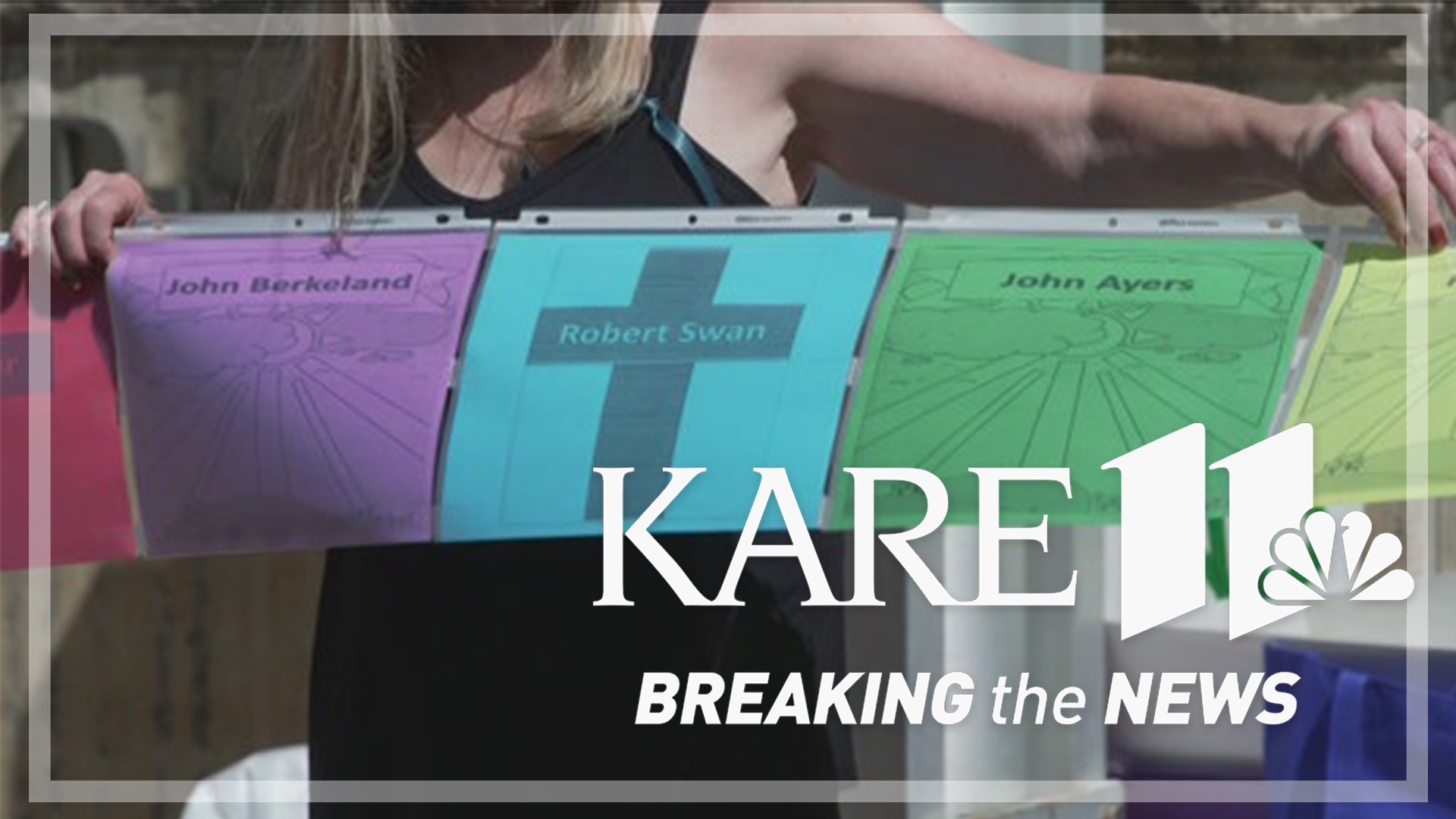SAINT PAUL, Minn. — The Minnesota Sex Offender Program in Moose Lake and St. Peter currently has 734 people who were involuntarily committed for an indeterminate period after a judge determined they are a "sexually psychopathic personality" or a "sexually dangerous person."
The State Department of Human Services refers to them as "clients" because they are not inmates and the facility is not a prison. The process for committing someone there generally begins in civil court at the end of the person's prison sentence.
As the program turns 30 years old, a small group of protesters, most of whom have a loved one inside, is calling for the state to spend the $100 million per year devoted to the program in other ways.
"The detainees there have served their time for any crimes committed, and any treatment that is being done there could be done on the outside," said Brenda Camacho from New Ulm.
"I myself am a victim of someone who is held at MSOP. So I do understand both sides of it, however, these people have served their prison sentence. This is just additional time on top of that. They have done their time. They should be able to reintegrate," said Tiffany Minkel from Hutchinson.
The program was created to commit sex offenders deemed most likely to re-offend and attempt to rehabilitate them.
But for the first two decades of its existence, there seemed to be no pathway for release. By 2013, only one man -- who had 30 victims -- was released to a halfway house.
After the clients sued, dozens began being conditionally released and 25 have been fully released. A federal judge initially ruled in their favor but an appeals court determined the program is constitutional.
At their press conference today -- opponents demonstrated that nearly four times as many clients have died while committed than have been fully released.
They argue those committed would not re-offend if released. However, supporters of the program fear that's overly optimistic.
One high-profile client is Mark Steven Wallace -- who has long been the only suspect in the disappearance of Saint Paul teen Hang Lee. While he's never been charged in that case, a judge heard evidence from that -- and several other kidnapping and rape incidents where Wallace was convicted -- before the judge ruled Wallace is a "sexually dangerous person" and a "sexually psychopathic personality."
Danny Heinrich, the man who admits kidnapping and killing Jacob Wetterling, will be released from federal prison on a child pornography charge in 8 years. But on the day of his plea deal, U.S. Attorney Andy Luger said Heinrich would likely be committed in MSOP and not actually be freed.
But as the program enters a 4th decade, there are those who argue it is not preventing sexual violence in Minnesota.
“Only a court has the authority to commit someone to MSOP or to discharge them. MSOP provides the therapeutic guidance and tools clients need to break ingrained patterns of behavior and make meaningful changes in their lives. Public safety is at the heart of everything we do,” said MSOP Executive Director Nancy Johnston.

